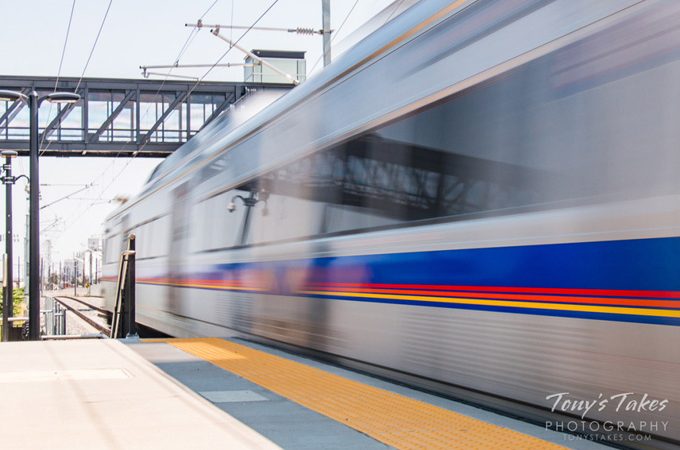by Randal O’Toole
According to a misleading new report, Colorado ranks 29th in per capita funding for transit, spending just one-twentieth of the national average. Thus, there is a “funding gap” for public transit. But Colorado apparently ranks 29th only in state transit funding. What’s left out is that most transit funding comes from the regional level.
The misleading data are part of a report by a Boulder group known as the South West Energy Efficiency Project (SWEEP), which is urging the state legislature to spend more money on transit. But this recommendation is based on three fallacies.
First is the fallacy that more spending on transit leads to more transit ridership. The state with the highest state per capita transit funding is Alaska, but just 1.6 percent of Alaska commuters take transit to work, compared with 5.5 percent nationally. Other states spending more on transit than Colorado include Vermont, Tennessee, New Mexico, North Dakota, Oklahoma, and Wyoming. Only about 2.3 percent of Wyoming commuters take transit to work. In the other states listed here, it’s less than 1.5 percent.
Instead of increasing transit ridership, state funding often goes for transit boondoggles that do little or nothing to reduce congestion. Florida taxpayers gave $89 million to an Orlando commuter train that carries just 1,800 weekday roundtrips, and are about to spend $41 million on a Ft. Lauderdale streetcar line that will carry even fewer. Tennessee taxpayers contributed nearly $4 million to a Nashville commuter train that carries only about 500 weekday roundtrips. New Mexico spent tens of millions on a train between Santa Fe and Albuquerque that carries just 1,700 daily round trips. These projects were a complete waste of taxpayer dollars.
The second fallacy is that increasing transit ridership saves energy. As I’ve shown in the past, transit uses almost exactly the same amount of energy per passenger mile as automobiles. While some forms of rail transit use less energy than buses, the energy cost of building rail lines often greatly exceeds the annual energy savings that might be expected during the life of the project.
The third fallacy is that state funding is needed for transit in every state. In fact, states differ widely on their transit policies. Some states spend more on transit than others because they don’t have regional transit agencies that cross municipal boundaries. Maryland is a small state with a lot of smaller counties, and rather than have a separate transit agency in each county, the state runs all of the transit. This allows it to score high on SWEEP’s list.
Other states spend a lot of transit because they haven’t given transit agencies the authority to collect their own taxes. The Southeast Pennsylvania Transportation Authority (SEPTA) serves five counties but doesn’t have a dedicated sales or property tax to fund it. Instead, it gets nearly half its funds from the state. Boston’s Massachusetts Bay Transportation Authority is the same.
Denver has a regional transit district (RTD) funded by sales taxes collected in that region. So RTD doesn’t rely on state funding.
But even this is a tremendous waste of tax dollars. RTD’s budget is $2.5 billion, and it moves around 3 percent of daily commuters. The Colorado Department of Transportation (CDOT) is responsible for all of the roads that carry the other 97 percent of commuters (and even some of RTD’s 3 percent when they opt to drive instead of take transit), yet CDOT’s annual budget is roughly $1.3 billion, around half that of RTD.
The SWEEP report laments that the only “consistent source” of state funding for transit is $15 million per year out of FASTER vehicle registration fees. But transit shouldn’t even be getting that money. Article X, Section 18 of the Colorado Constitution clearly states that vehicle registration fees must be used exclusively “for the construction, maintenance, and supervision of the pubic highways of this state.” While this has yet to be litigated, it is pretty obvious that using FASTER fees for transit is unconstitutional, and should be going to roads instead.
Ironically, transit agencies dependent on state funding spend a lot of time complaining that they don’t have a dedicate source of funds and instead have to rely on the uncertainties of annual appropriations by the state legislature. SWEEP thinks that Colorado transit would be better off relying on such appropriations. In other words, it wants to have its dedicated funding and get state funds too.
As usual, transit advocates are never satisfied and always want more money.
Randal O’Toole directs the transportation policy center at the Independence Institute, a free market think tank in Denver. A version of this original appeared in his blog, Theantiplanner and on Complete Colorado.








